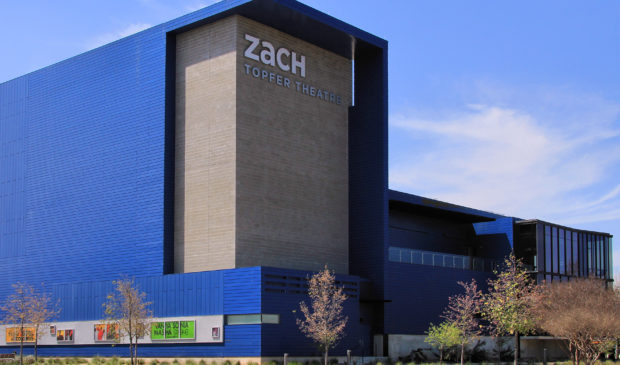Music Commission set to finalize proposal process for creative space bonds
Thursday, July 11, 2019 by
Chad Swiatecki The city’s Music Commission hopes to make a decision by September on how arts and music groups will be able to submit proposals to receive some of the city’s $12 million in creative spaces funding.
At last week’s meeting, commissioners agreed, without passing an official resolution, to come to the August meeting with consensus on what requirements and priorities would have to be built into a request for proposal process. That decision came after a presentation about previous city bond proposals, and how the broad language in the bond question approved by voters in November has created a somewhat nebulous path for proposals to be accepted and evaluated.
Christine Maguire, manager of the city’s Redevelopment Division, said the bond proposal’s inclusion with arts and cultural facilities makes it expected that projects would need to be largely open to the public, with economic development and financial performance not a primary concern.
“We’re being more innovative with this 2018 creative space bond where a partner hasn’t been identified but there is still language that is construed as a contract with the voter,” she said. “The farther you go on the economic development side, the more likely it is that we will not get attorney general approval to issue our bonds. If they say no, we have to go back to the drawing board.”
Maguire said the city’s property agreement with Zach Topfer Theatre, and the $10 million bond proposal that helped fund its construction, along with similar arrangements with the Austin Film Society and Mexic-Arte Museum, show other possible proposal structures groups might look to replicate.
Since the bond proposal was passed there has been some guidance from the city’s bond counsel that the city would have to have an ownership stake in any projects that receive money.
John Riedie, CEO of the Austin Creative Alliance and a member of the Tourism Commission, said more than a dozen local arts groups have property deals “on the table” that need some financial assistance quickly – each totaling less than $1 million – that could see the city take over the property and grant lease deals to the groups.
“This is urgent. Several of these organizations are going to miss the windows that they have right now,” he said. “There are people out in the community making plans … so they would pass attorney general muster, but the only thing keeping them from accessing this money is the process that has yet to be put in place. I’m here to say, in all haste put something in place, because the organizations are already there.”
Last month, the music and arts commissions held a joint meeting to gather community feedback on how to deploy the bond money, with preference given for existing arts and music groups and social equity as criteria for proposals.
Commissioner Jonathan Mahone said last week that the proposal process needs to be finalized quickly and explained to the public to spell out the financial and personnel expectations for groups looking to receive money.
“We have to do some work on our end to reach out on what these bullet points are and what the general bar is because it’s fairly high,” he said. “This is not a, ‘Hey, I have an idea, let me shoot it out at you’ type of scenario. This is an intensive scenario and we have to do some work to explain to people what exactly is involved in this.”
With some existing groups likely to include a separate fundraising campaign to leverage the city’s money, Commissioner Stuart Sullivan said he doesn’t want those situations to create a “cost of admission” that would limit access for groups lacking strong financial support.
“We were talking about fundraising and leveraging things … all of that means more money, and a lot of the groups that are needing this money the worst are the least likely to be able to do that,” he said. “So if we’re really trying to address the problems of the most needy in this group, I am concerned if we are talking about fundraising and leveraging because that could mean higher costs.”
Photo by Larry D. Moore [CC BY-SA 3.0], via Wikimedia Commons.
The Austin Monitor’s work is made possible by donations from the community. Though our reporting covers donors from time to time, we are careful to keep business and editorial efforts separate while maintaining transparency. A complete list of donors is available here, and our code of ethics is explained here.
You're a community leader
And we’re honored you look to us for serious, in-depth news. You know a strong community needs local and dedicated watchdog reporting. We’re here for you and that won’t change. Now will you take the powerful next step and support our nonprofit news organization?











